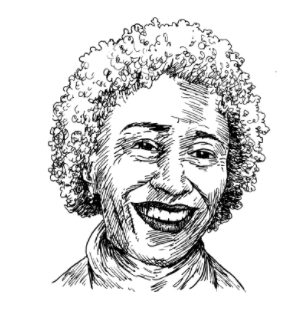I’ve had the privilege of knowing Margo Jefferson since 2011, when I took her class The Critic as Artist as a student in Columbia University’s graduate writing program. I’d thought I knew all there was to know about Walter Benjamin—until she had us read Berlin Childhood around 1900, which introduced me to the idea that a writer’s life is worthy of detailed study; that it can illuminate their work when placed alongside it.
It was to my great surprise and delight when, in her 2015 memoir, Negroland, Margo placed her own life—her childhood among Chicago’s black elite and accomplished adulthood as a journalist (she won the Pulitzer Prize for Criticism in 1995)—under the scan of her unrelenting eye. I had long admired Margo’s incisive and extremely attuned writing, her ability to elucidate the most subtle detail and make it sing. When her memoir was published, I had been out of grad school a couple of years, had moved away and hadn’t seen her in as long, though I had already torn through her first book, On Michael Jackson (2006), after reading everything of hers I could find online. Reading Negroland was like opening a portal into her mind, and just like Benjamin’s Berlin Childhood had, it offered new insights into a thinker I thought I already knew.
It also taught me something about myself as a woman and as a writer. I was so excited by the book that I couldn’t wait until I’d finished reading to tell her how much I loved it. “It makes sense,” I wrote to her in an email, “that in your memoir you would act as a critic—as black women, we are constantly forced to see ourselves through others’ eyes, and thus become critics of our own lives. This is something I have always felt on some level, but I confronted it in your book as plain truth.”
I spoke to Margo on the phone in June 2018 about various aspects of her writing and her career. Her work has not only challenged me to think about art more deeply, but to do the same in regard to my own life. For that, I, and her many readers, will always be grateful.
—Zinzi Clemmons
I. “PERFORMANCE AS A FORM OF TRUTH, NOT OF LYING”
THE BELIEVER: A lot of your work investigates unexplored aspects of various identities, but primarily race and gender. I might describe your project as arguing for nuance in order to rethink identity. You did it in On Michael Jackson by connecting the dots of his personality and drawing attention to our blind spots about his persona. And you filled in a picture...
You have reached your article limit
Sign up for a digital subscription and continue reading all new issues, plus our entire archives, for just $1.50/month.
Already a subscriber? Sign in





